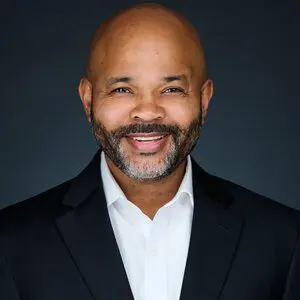3 Ways to Save Money on Health Care
Three out of four adults spend less than one hour deciding on their health plans during open enrollment, according to a recent Consumer Engagement in Health Care Survey. Creating a plan for taking care of medical expenses can be daunting, but paying out-of-pocket medical expenses can be even worse.
Those who take advantage of employer-provided health insurance will receive communications from your workplace. Self-insured people are encouraged to visit www.healthcare.gov, www.nase.org, or speak directly with a preferred provider to enroll.
If you skip health care open enrollment in any given year, your existing coverage will likely carry over to next year at revised prices, impacting your paycheck. Dedicating more time to your healthcare selection process can help you save money and secure your financial fitness.

Save money with health savings accounts (HSA)
Pretax contributions can be used for medical, vision, or dental expenses. You must be enrolled in a high-deductible health plan. Distributions for qualified expenses are untaxed. The benefits of using a health savings account are as follows:
- Triple tax savings – In most states, contributions, earnings, and qualified health care expenses are not subject to state or federal income tax. Contribution limits vary by state, family size, and age.
- Interest and investment benefits – Contributions and interest earned in HSAs can be invested in mutual fund families once minimum balance requirements are met. Consult a fee-only adviser for additional information.
- Keep your money – Because you own the HSA, you can retrieve or access those funds if you change jobs, change health insurance plans, or retire.
- No use or lose it a feature – Balances in your account at year-end, roll to the following year.
- Age 65 comes with a benefit – Persons ages 65 and older can use HSA savings for non-eligible expenses, penalty-free, but you must pay income taxes on all deducted funds. In this instance, your funds would be tax-deferred.
- No time limit on reimbursement – You do not have to reimburse yourself for a qualified medical expense during the year the payment occurs. Reimbursements can be awarded in any year so long as receipts are provided. By not seeking immediate reimbursement, your contributions and earnings in your investment account should grow faster.
Related Article: Cincinnati low-cost healthcare, pharmacy care, and more.
Save money with flexible spending accounts (FSA)
Although your employer owns a flexible spending account, these funds can be accessed to pay out-of-pocket expenses for health care or dependent care of a qualifying adult who meets specific Internal Revenue Service (IRS) guidelines.
HSAs may be accessed to pay out-of-pocket medical, vision, or dental costs. You are spending the money anyway, so you might as well spend it tax-free.
Contribution limits apply on a per-plan basis. If you and your spouse work for the same company, you could contribute up to the maximum allowed. Unused funds are forfeited unless the employer allows a rollover capped at $610.

Manage your costs and protect your estate by updating your healthcare profile.
Life-changing events such as the birth or adoption of a child, death of a spouse or dependent, marriage, divorce, or change in your spouse’s employment status will impact your benefit selections, costs, and eligibility.
A good practice is ensuring your beneficiaries’ information is correct in your life insurance policies. If you have not already done so, this is a great year to establish a healthcare power of attorney and payable on death bank accounts.
As with all suggestions, the final choice to incorporate these options is yours. If you elect to do nothing, you give the IRS more of your hard-earned paycheck and are less prepared for life’s future events.
Related Article: Finding affordable healthcare insurance in Cincinnati
About the author, Al Riddick
Al is the founder and president of Game Time Budgeting, an award-winning financial fitness firm that helps employees develop the proper mindset, behaviors, and systems so they can save more, reduce debt, and live a better life. For almost two decades, Al and his wife, Lesia, have been living debt-free after eliminating $150,000 of financial obligations.
As a highly sought-after speaker, Al delivers passionate and inspiring presentations that educate audiences about saving more, spending wisely, and maximizing their financial potential. Al has been featured in Black Enterprise and Money magazines, on the radio, and ABC, CBS, and NBC-affiliated television stations.
His book, The Uncommon Millionaire: Financial Success Begins with Behavior, was published in 2016. His book, The Uncommon Millionaire’s Guide to Financial Fitness, was published in 2020.

The Voice of Black Cincinnati is a media company designed to educate, recognize, and create opportunities for African Americans. Want to find local news, events, job postings, scholarships, and a database of local Black-owned businesses? Visit our homepage, explore other articles, subscribe to our newsletter, like our Facebook page, join our Facebook group, and text VOBC to 513-270-3880.
Comments are closed.